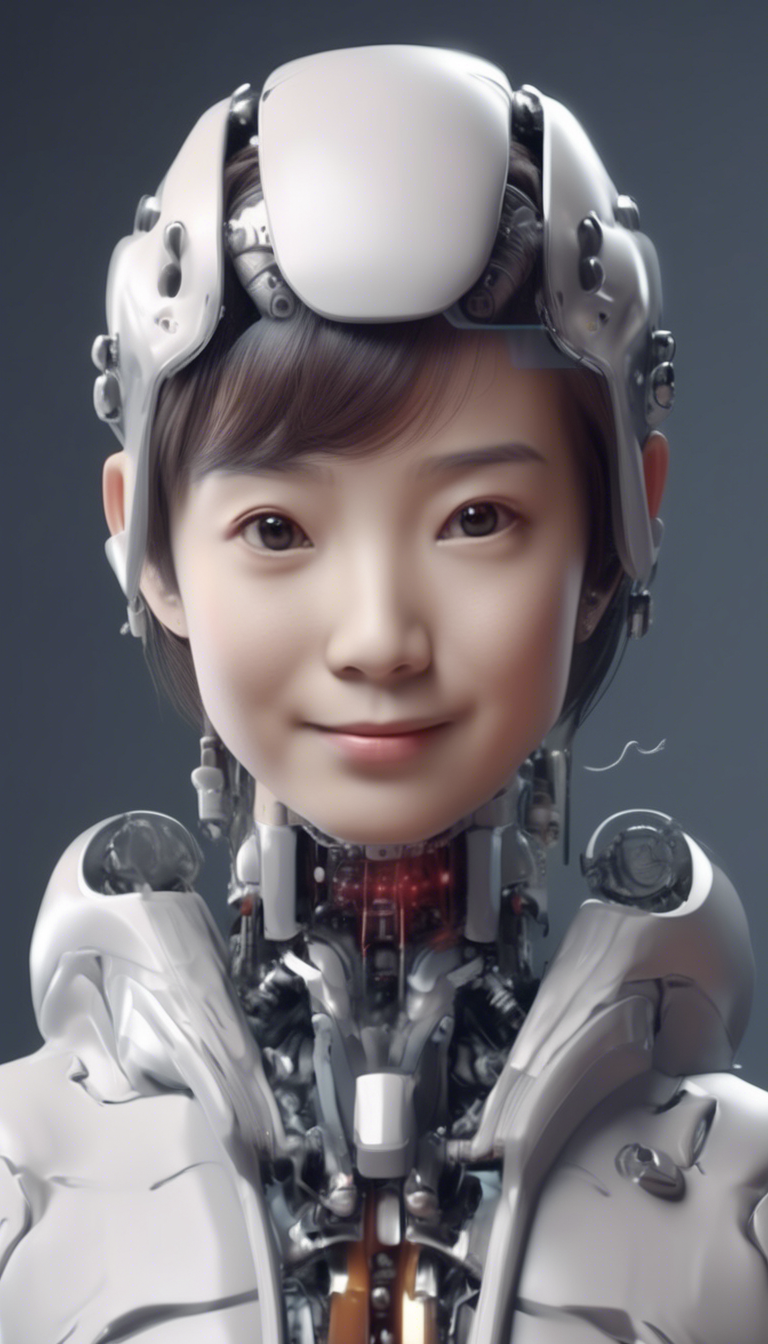The Meaning and Implications of Character AI in Modern Digital Interactions
In recent years, the emergence of character AI has significantly transformed how individuals interact in digital environments. This sophisticated technology enables the creation of virtual characters capable of simulating human-like behavior and responses. Understanding the meaning of character AI and its implications is crucial as it continues to influence communication, entertainment, and even emotional connections in modern society.
The Essence of Character AI
Character AI refers to artificial intelligence systems designed to embody personality traits, behaviors, and emotions akin to a human character. These systems often utilize natural language processing (NLP) and machine learning algorithms to engage users in conversation and simulate interactions across various platforms. The ultimate goal is to create an engaging experience that feels personalized and relatable.
Usage in Digital Spaces
The integration of character AI spans multiple domains, offering a versatile tool for various applications, including:
- Customer Service: Many businesses utilize chatbots powered by character AI to provide immediate assistance, enhancing customer satisfaction.
- Gaming: In the gaming industry, character AI contributes to creating lifelike non-player characters (NPCs) that adapt to player actions, enriching gameplay experiences.
- Education: Educational platforms leverage character AI for interactive learning experiences, allowing students to engage with virtual tutors that can adapt to their learning pace.
- Therapeutic Applications: Character AI can be programmed to support mental health initiatives by providing companionship or facilitating conversations that help users express their feelings.
Enhancing Communication
The introduction of character AI has dramatically affected communication styles, particularly in online interactions. Users can now engage with virtual characters, which can lead to a more dynamic exchange. Here are some ways in which character AI enhances communication:
- Accessibility: Character AI can help bridge communication gaps for individuals with disabilities, providing alternative methods for interaction.
- Real-time Feedback: Users often receive instant responses, creating a fluid conversation that can mimic genuine human interaction.
- Personalization: These systems can learn user preferences, allowing for a more tailored experience, which can help build stronger connections.
Emotional Implications
The emotional dimensions of character AI interaction cannot be overlooked. Human psychology plays a vital role in how people perceive and form relationships with virtual characters. By mimicking empathy and understanding, character AI can evoke genuine emotional responses, resulting in:
- Increased Engagement: Users may spend more time interacting with character AI, frequently becoming attached to these virtual personas.
- Providing Solace: In a world where loneliness is prevalent, character AI can serve as a source of comfort, offering companionship to those in need.
- Cognitive Development: Engaging with character AI can promote social skills and emotional intelligence, particularly in children and individuals on the autism spectrum.
Ethical Considerations
While the prospects of character AI are promising, ethical dilemmas accompany their increasing presence in society. Concerns surrounding privacy, emotional manipulation, and dependency on digital interactions arise. As character AI becomes more sophisticated, the following ethical issues need to be addressed:
- Data Privacy: Ensuring user data is secure and used ethically while interacting with character AI systems is paramount.
- Manipulation Risks: The potential for emotional manipulation raises questions about the responsibilities of developers in ensuring ethical usage.
- Dependence: As individuals grow more reliant on virtual relationships, the impact on real-life social skills could be detrimental.
Character AI is reshaping how we communicate, interact, and connect emotionally in digital spaces. Its multifaceted applications reflect its potential to enhance the overall user experience. Understanding the implications of this technology is crucial as society continues to grapple with emerging ethical considerations, ultimately defining the role character AI will play in our daily lives.
Exploring the Role of Character AI in Enhancing User Engagement and Experience
In the ever-evolving landscape of digital interaction, character AI plays a pivotal role in enhancing user engagement and overall experience. This technology comprises artificial intelligence-driven characters designed to simulate conversation, interaction, and even decision-making in a way that feels natural and relatable. With an increasing demand for personalized experiences across various platforms, the significance of character AI cannot be overstated.
Understanding Character AI
Character AI refers to digital personas created using advanced algorithms and machine learning techniques. These characters are capable of understanding human language, emotions, and contexts, allowing them to respond appropriately. Whether implemented in chatbots, virtual avatars, or video games, character AI leverages natural language processing (NLP) to create seamless interactions between users and machines. This technology enhances user experience by bringing a human-like quality to digital interactions.
Benefits of Character AI
- Enhanced Interaction: Character AI enables fluid conversations, allowing users to engage meaningfully with digital entities. The AI’s ability to learn from user inputs helps it offer tailored responses that resonate with individual users.
- Personalization: By tracking user preferences and behaviors, character AI can offer a personalized experience. This customization builds a deeper connection, as users feel their interactions are uniquely catered to them.
- Availability: Unlike human counterparts, character AI is available 24/7. Users can engage with these AI personas at any time, fostering a sense of continuity in their interactions.
- Scalability: Businesses can efficiently scale customer service solutions using character AI. As the demand for support grows, AI can adapt and handle larger volumes of interaction without the need for additional human resources.
Applications of Character AI
Character AI finds its place in various sectors, significantly boosting user engagement and experience.
1. Customer Support
Many companies leverage character AI to enhance their customer support systems. AI-driven chatbots can answer frequently asked questions, troubleshoot issues, or guide customers through a process efficiently. These interactions feel more human and engaging due to the character’s personality, allowing users to receive help without feeling rushed.
2. Gaming and Entertainment
In the realm of gaming, character AI allows for more immersive experiences. Game characters driven by AI can respond dynamically based on player actions, emotions, and storyline choices. This level of engagement not only enhances gameplay but also fosters emotional connections between players and characters.
3. Content Creation and Learning
Educational platforms are increasingly integrating character AI for personalized learning. By simulating tutors or mentors, these AI characters can adjust their teaching methods according to the learner’s progress, making education more interactive and enjoyable.
4. Virtual Companions
Character AI has also made its way into personal applications, serving as virtual companions. These AI-driven characters can engage users in conversations, play games, or provide entertainment, creating a unique avenue for social interaction, especially for those feeling isolated.
Challenges in Character AI Implementation
Despite its advantages, there are challenges organizations face when implementing character AI. Some key challenges include:
- Understanding Nuance: AI can struggle with sarcasm, idioms, and cultural nuances, potentially leading to misunderstandings in conversation.
- Emotional Intelligence: While AI can simulate empathy, it may not genuinely understand human emotions, risking disengagement if users feel their concerns aren’t truly acknowledged.
- Technical Limitations: The complexity of maintaining a continuously learning AI poses significant technical challenges, including addressing biases in data and ensuring privacy.
Future of Character AI
The future of character AI looks promising, with advancements aiming to create even more engaging user experiences. As natural language processing continues to evolve, we may see AI characters that not only understand context but can also convey emotions authentically. This evolution could lead to deeper relationships between users and digital entities, blurring the lines between human interaction and artificial intelligence.
Character AI stands at the forefront of enhancing user engagement and experience across various sectors. By providing personalized, interactive, and human-like interactions, this technology is reshaping how users connect with digital environments, paving the way for more profound and engaging user experiences in the digital age.
Conclusion
As we delve deeper into the world of character AI, it becomes evident that its meaning extends far beyond mere functionality. This technology epitomizes a shift in how we engage with digital landscapes, fostering more personalized and interactive experiences. The implications of character AI are profound; they not only reshape the way brands communicate with their audiences but also redefine user expectations. Users today seek authenticity and emotional connection in their interactions, and character AI delivers on this desire by providing relatable, engaging personas that resonate with individuals on a personal level.
The exploration of character AI reveals its transformative role in enhancing user engagement and experience. By integrating these intelligent characters into various platforms—be it gaming, marketing, or customer service—brands can create immersive environments that captivate users. These interactions are no longer one-dimensional; character AI facilitates dynamic conversations and builds relationships that feel genuine. As a result, users are not merely passive consumers; they actively participate in the narrative, enhancing their overall experience.
Moreover, the importance of character AI in modern digital interactions cannot be overstated. It serves as a bridge between technology and human emotions, allowing users to feel understood and valued. This level of engagement leads to increased loyalty and a stronger connection to brands. For instance, consider how a character AI can remember users’ preferences, provide personalized recommendations, or engage in meaningful conversations that reflect users’ interests. This not only improves user satisfaction but also elevates the brand’s reputation in an increasingly competitive landscape.
The future of digital interaction is likely to be heavily influenced by advancements in character AI technology. As developers continue to refine these systems, we can expect even more sophisticated and human-like interactions. Embracing character AI is not just about keeping pace with technological advancements; it represents a commitment to understanding and meeting the needs of users. As we continue to navigate this evolving landscape, the potential for character AI to redefine our digital interactions remains limitless, offering fresh opportunities for creativity, engagement, and connection.


